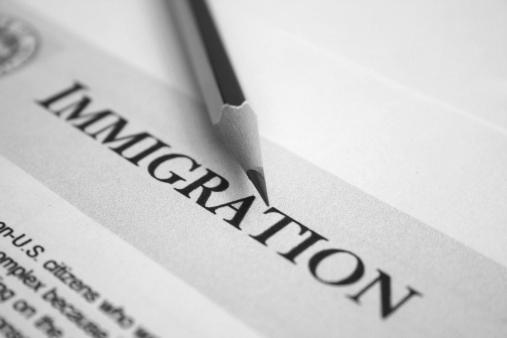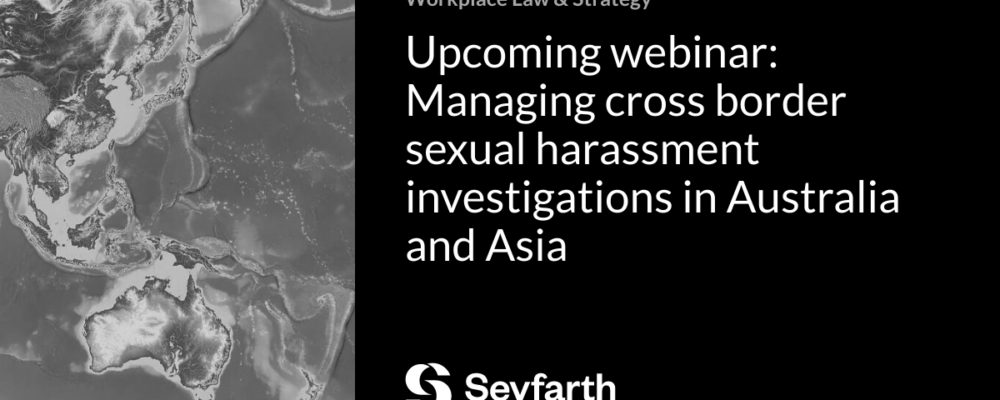By: Dawn Lurie, Mia Batista, and Fanny Wong
On January 20, 2025, the Trump administration issued the Securing Our Borders executive order, citing national security, crime prevention, and the protection of American interests as justification for terminating categorical parole programs for certain Cubans, Haitians, Nicaraguans, and Venezuelans. Then on February 1, 2025, Secretary of Homeland Security Kristi Noem announced the termination of Temporary Protected Status (TPS) for Venezuela’s 2023 designation.
Notably, this termination does not impact individuals who were granted TPS under Venezuela’s 2021 designation. Those beneficiaries will retain their protection from removal and work authorization until September 10, 2025. The dual designations—2021 and 2023—have made TPS rules for Venezuelans increasingly complex, adding to the uncertainty surrounding their legal status.
The administration’s broader crackdown on humanitarian relief programs also includes the termination of the Cuba, Haiti, Nicaragua, and Venezuela (CHNV) parole program, and a pause on the Uniting for Ukraine (U4U) parole program. Following the executive order, U.S. Citizenship, and Immigration Services (USCIS) ceased accepting new applications for these programs, leaving the status of individuals already present in the U.S. with work authorization in limbo.
More broadly, TPS designations for other countries, including those up for redesignation in 2025, remain uncertain and under scrutiny.
Termination of TPS for Venezuelans who registered under the 2023 designation
Since this executive order was signed, the Trump administration has begun taking steps to carry out the directives of that order. Published on February 5, 2025, the Federal Register (FR) notice:
“Termination of the October 3, 2023 Designation of Venezuela for Temporary Protected Status” has now ended the 2023 designation of Venezuela (valid from October 3, 2023, to April 2, 2025). After reviewing the country’s conditions and consulting with various U.S. government agencies, Secretary of Homeland Security Kristi Noem has determined that Venezuela no longer meets the conditions for the 2023 designation. After April 7, 2025, nationals of Venezuela (and those with no nationality but last habitually resided in Venezuela) who had been granted TPS under the 2023 Venezuela designation will no longer have TPS”.
While some sources have indicated that EADs have been extended until April 7, 2025, reflecting the designation termination, it appears that unless a legal challenge succeeds, work authorization for the 2023 TPS group ends on April 2, 2025.
To further support our contention USCIS posted guidance stating: “Beneficiaries of the 2023 TPS Venezuela designation who presented an EAD with a Category Code of A12 or C19 and an expiration date of April 2, 2025, must be reverified before they start work on April 3, 2025.”
FWIW: The History
TPS can be granted to eligible nationals of a foreign country and to individuals without nationality who last habitually resided in the designated country. On March 9, 2021, former Secretary of Homeland Security Alejandro Mayorkas designated Venezuela eligible for TPS based on his determination that there were extraordinary and temporary conditions in Venezuela that prevented nationals from returning safely and that permitting these individuals to remain temporarily in the United States was not contrary to the national interest of the United States. On October 3, 2023, former Secretary Mayorkas redesignated Venezuela for TPS, which resulted in two separate and concurrent Venezuela TPS designations. He also consolidated the filing processes so that all eligible Venezuela TPS beneficiaries (2021 and 2023 designations) could obtain TPS until October 2, 2026.
Secretary Noem has now determined that country conditions in Venezuela have improved and that Venezuelan nationals can safely return to their home country. In addition, the Secretary has stated that even if relevant conditions in Venezuela remain extraordinary and temporary, TPS should still be terminated as it is now contrary to the national interest of the U.S. to permit Venezuelan nationals to remain temporarily in the U.S. The FR cites concerns related to costs to taxpayers, crime, gang-related activities, national security, border enforcement, economic and public welfare concerns, as well as concerns that TPS redesignation will create a “magnet effect” and potentially attract more Venezuelan nationals to the U.S.
The 2021 TPS designation remains valid for now.
It is important to note that this particular FR terminates only the October 3, 2023, Venezuela TPS designation. The 2021 Venezuela TPS designation remains in effect until September 10, 2025. Secretary Noem will decide by July 12, 2025, whether to extend or terminate the 2021 Venezuela designation. If no action is taken, and the Secretary does not make a timely determination, then under INA 244(b)(3)(C), 8 U.S.C. 1254a(b)(3)(C), the 2021 TPS designation will extend automatically for an additional six (6) months. USCIS will continue to issue new cards with an expiration date of September 10, 2025. Although no decision has been made yet on the TPS for 2021 designated Venezuelans, Secretary Noem may make a similar determination and deem TPS for 2021 designated Venezuelans as contrary to U.S. national interest.
Termination of Cubans, Haitians, Nicaraguans, and Venezuelans (CHNV) Parole Program
The CHNV parole program, launched under President Biden in January 2023, provided a legal pathway for up to 30,000 migrants per month from Cuba, Haiti, Nicaragua, and Venezuela to enter the United States. Designed as a temporary measure, the program granted approved individuals stays of up to two years, allowing them to live and work legally in the U.S. To qualify, applicants needed a U.S.-based financial sponsor and had to pass stringent background and security checks. The initiative followed the model of earlier successful programs including one for Ukrainian nationals, aiming to reduce unlawful border crossings. By December 2024, more than 531,000 individuals had entered the U.S. through this process, according to U.S. Customs and Border Protection.
The termination of the CHNV program under the Securing Our Borders executive order has immediate and far-reaching consequences. Effective immediately, no new applications or sponsorships will be accepted. While current beneficiaries may remain in the U.S. until their two-year parole period expires, they will not have the option to renew their status. Once their parole lapses, they face the risk of falling into unauthorized status, losing work authorization, and potential deportation. Additionally, the Department of Homeland Security has expanded expedited removal procedures, targeting individuals who lack permanent legal status or have not applied for asylum within their first year in the U.S. These policy shifts create deep uncertainty for hundreds of thousands of individuals who relied on these programs for legal protection and work authorization.
Impact on Employers
While no Federal Register notice has been published specifically addressing the termination of the CHNV program, we expect one to be issued.
Since CHNV parolees were eligible for work authorization, this policy change will impact employers with workers whose employment authorization was granted through the program. While it is clear that employees must stop working immediately upon the expiration of their employment authorization, what remains unclear is when employers are required to terminate these parolees and how they can determine the scope of affected employees.
Employers do not want to be caught in the crosshairs of the program’s termination. They aim to avoid scrutiny from Immigration and Customs Enforcement and are seeking clear directives from USCIS on how to navigate these changes proactively.
“With approximately 900 lawyers across 17 offices, Seyfarth Shaw LLP provides advisory, litigation, and transactional legal services to clients worldwide.”
Please visit the firm link to site






